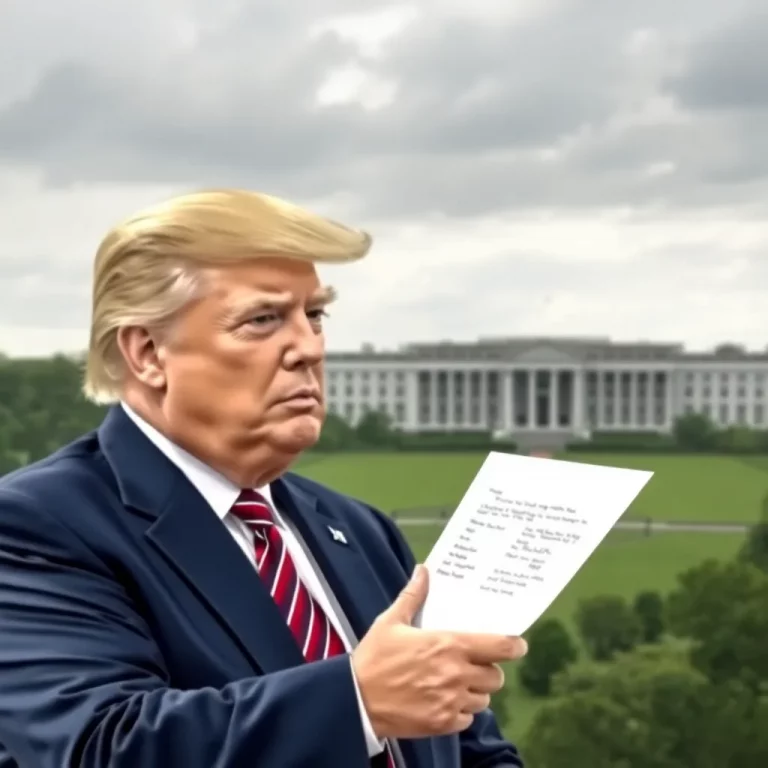Washington, D.C. – On Thursday, President Trump announced new rules aimed at reforming the name, image, and likeness (NIL) landscape in college sports. This comes after a series of changes in recent years that have allowed college athletes to earn significant money while still in school. The executive order is designed to bring structure to what the White House called an “out-of-control, rudderless system.”
The primary focus of the order is to prohibit “third-party, pay-for-play payments” made to collegiate athletes. However, athletes will still be able to secure brand endorsement deals. Additionally, the order seeks to ensure that any revenue-sharing agreements between universities and athletes are aimed at expanding or preserving “scholarships and collegiate athletic opportunities” for women’s and non-revenue sports.
Interestingly, any school with an athletic revenue exceeding $50 million cannot reduce the number of scholarships offered for non-revenue sports, which generally include sports other than football and basketball. Furthermore, schools earning more than $125 million in revenue must increase their scholarships for non-revenue sports in the upcoming academic year. This directive aims to safeguard opportunities for lesser-known sports that are often overshadowed by the more profitable men’s football and basketball programs.
The executive order also directs the National Labor Relations Board to clarify the status of collegiate athletes. This likely comes in response to the ongoing movements by some athletes who wish to be recognized as university employees and potentially form labor unions. At this point, the specifics on how this order will be enforced remain unclear.
President Trump’s order further instructs top administration officials to develop a comprehensive plan within the next 30 days utilizing “all available and appropriate regulatory, enforcement, and litigation mechanisms.” Discussions surrounding federal funding, Title IX enforcement, and collaborations with Congress are also on the table.
As college sports has evolved, significant changes have already taken place. For example, the NCAA allowed athletes to profit from their own name, image, and likeness starting in 2021. This shift has led to some athletes landing lucrative endorsement deals that were previously reserved for professional players. In fact, earlier legal decisions have allowed for revenue sharing with athletes for the first time. However, these changes have raised concerns about how smaller colleges will compete against larger programs with deeper pockets.
Critics have also pointed out that some fan groups are forming NIL collectives, which may lead to what looks similar to a “pay-to-play scheme.” In response, Trump’s executive order warns that, without proper regulations to promote balance across collegiate athletic programs, many college sports may face existential threats.
While many states are moving to regulate NIL transactions, an overarching federal standard has not yet been established. In the meantime, a House committee recently advanced the SCORE Act, which aims to implement national NIL rules, though concerns remain about the protections offered to athletes.
The NCAA responded positively to Trump’s announcement, stating they appreciate the government’s focus on the opportunities provided by college sports. NCAA President Charlie Baker acknowledged the ongoing challenges facing college athletics while advocating for collaborative solutions to address potential threats posed by new legislation.


